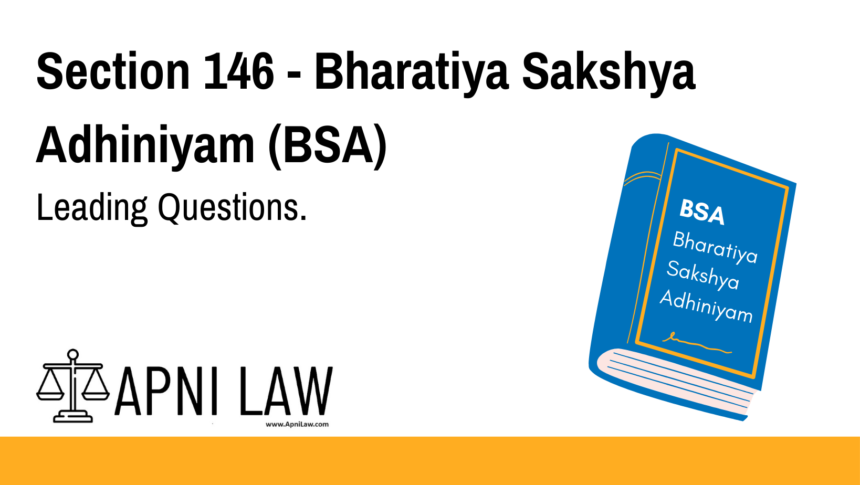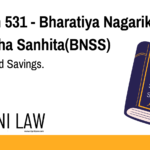Code: Section 146 BSA
(1) Any question suggesting the answer which the person putting it wishes or
expects to receive, is called a leading question.
(2) Leading questions must not, if objected to by the adverse party, be asked in an
examination-in-chief, or in a re-examination, except with the permission of the Court.
(3) The Court shall permit leading questions as to matters which are introductory or
undisputed, or which have, in its opinion, been already sufficiently proved.
(4) Leading questions may be asked in cross-examination.
Explanation of Section 146 BSA
Section 146 of the Bharatiya Sakshya Adhiniyam defines what a leading question is and outlines the circumstances under which such questions may or may not be used during witness examination.
A leading question is one that suggests the expected answer. For example, asking, “You were at the office that night, weren’t you?” instead of “Where were you that night?” is a leading question.
Key principles under Section 146:
- Leading questions are generally not allowed during examination-in-chief or re-examination unless permitted by the Court.
- The Court may allow leading questions when the facts are introductory, not in dispute, or already clearly established.
- Leading questions are fully allowed during cross-examination, as it serves the purpose of challenging and testing the credibility of a witness.
This provision balances fairness in eliciting truthful testimony while preventing undue influence or suggestion during direct questioning.
Illustration
Example 1: Leading Question Not Allowed in Examination-in-Chief
During the direct examination of a witness, the lawyer asks, “You saw the accused at the scene, didn’t you?” The opposing party objects. Unless the Court permits, this question is not allowed because it suggests the answer.
Example 2: Leading Questions Permitted in Cross-Examination
During cross-examination, the defense lawyer asks, “Isn’t it true that you were not even present at the location?” This is a leading question and is permissible under Section 146(4).
Example 3: Court Allows Leading Questions for Introductory Facts
In an examination-in-chief, the lawyer asks, “You are the manager of XYZ Bank, correct?” Since this is introductory and undisputed, the Court may allow it.
Common Questions and Answers on Section 146 BSA
- What is a leading question?
A leading question is one that implies or suggests the answer the questioner wants. It often limits the witness’s answer to a yes or no.
- Are leading questions allowed during direct examination?
No, unless the Court permits it. If the adverse party objects, leading questions cannot be asked in examination-in-chief or re-examination.
- When will the Court allow leading questions?
The Court may allow them when the questions pertain to introductory, undisputed matters or facts already proved.
- Can leading questions be asked during cross-examination?
Yes, leading questions are fully permissible during cross-examination to challenge or test the witness’s testimony.
- What is the purpose of restricting leading questions?
To ensure that the witness provides their own account during direct testimony and is not influenced by suggestive questioning.
Conclusion
Section 146 of the Bharatiya Sakshya Adhiniyam regulates the use of leading questions to maintain the integrity of witness testimony. It allows fair questioning during cross-examination while preventing undue influence in direct or re-examination unless warranted. This helps uphold the fairness and objectivity of the trial process.
For more detailed insights into evidence law and courtroom procedures, visit ApniLaw today.













